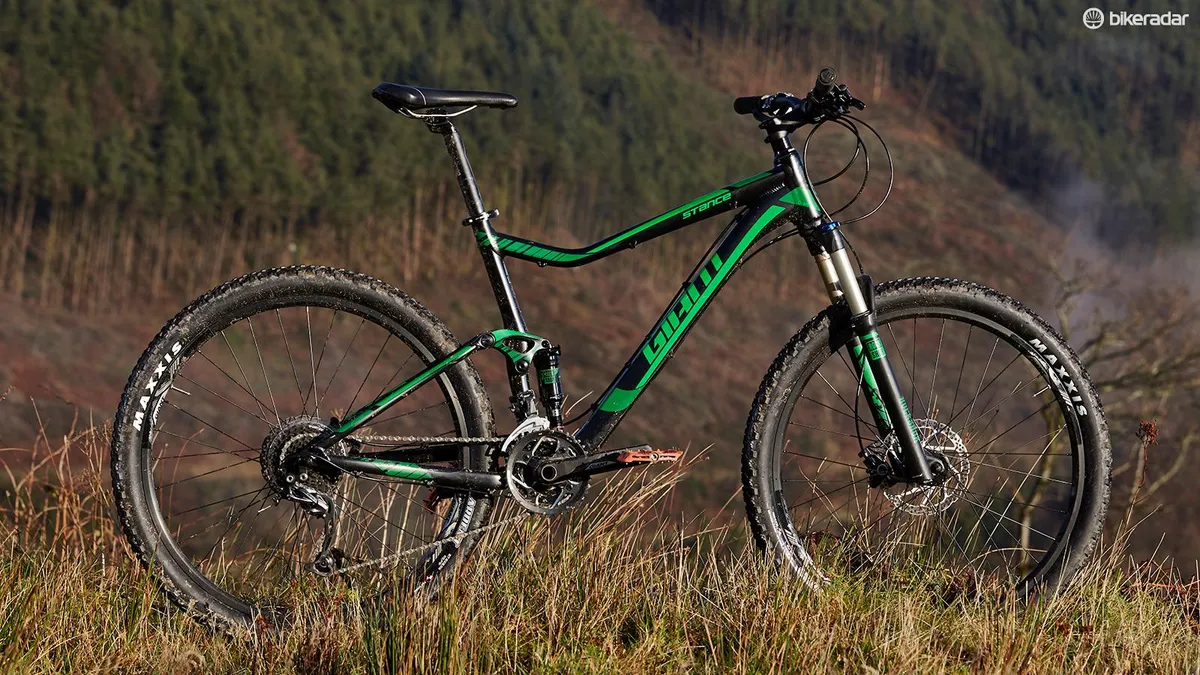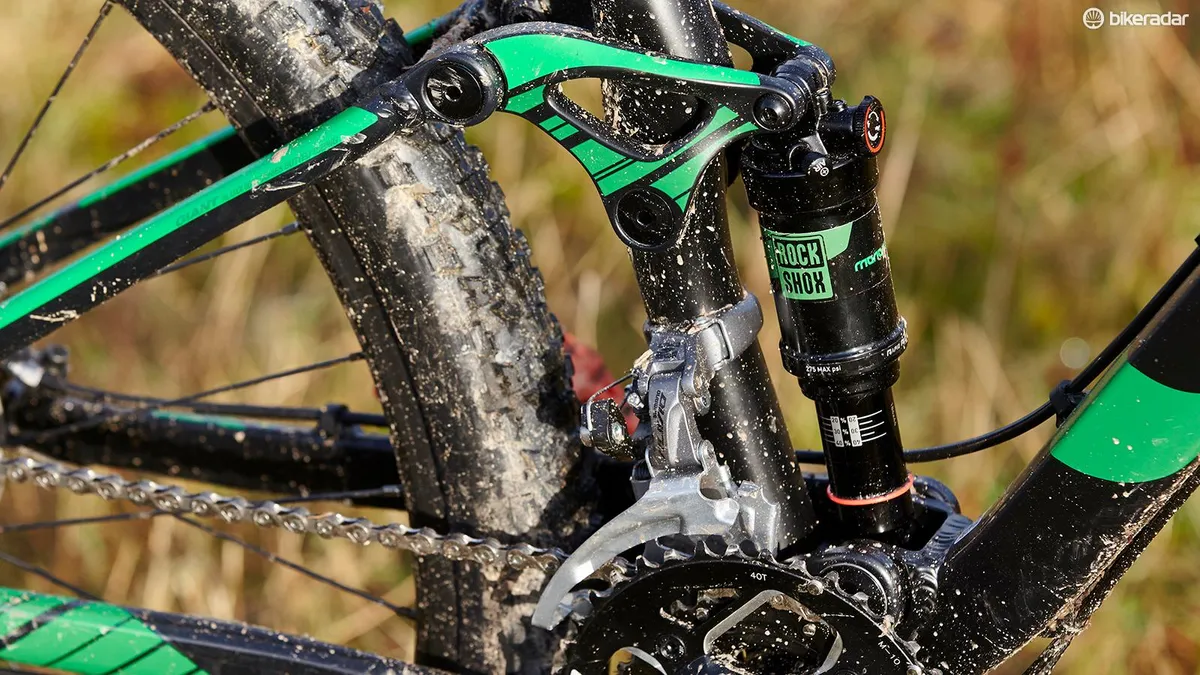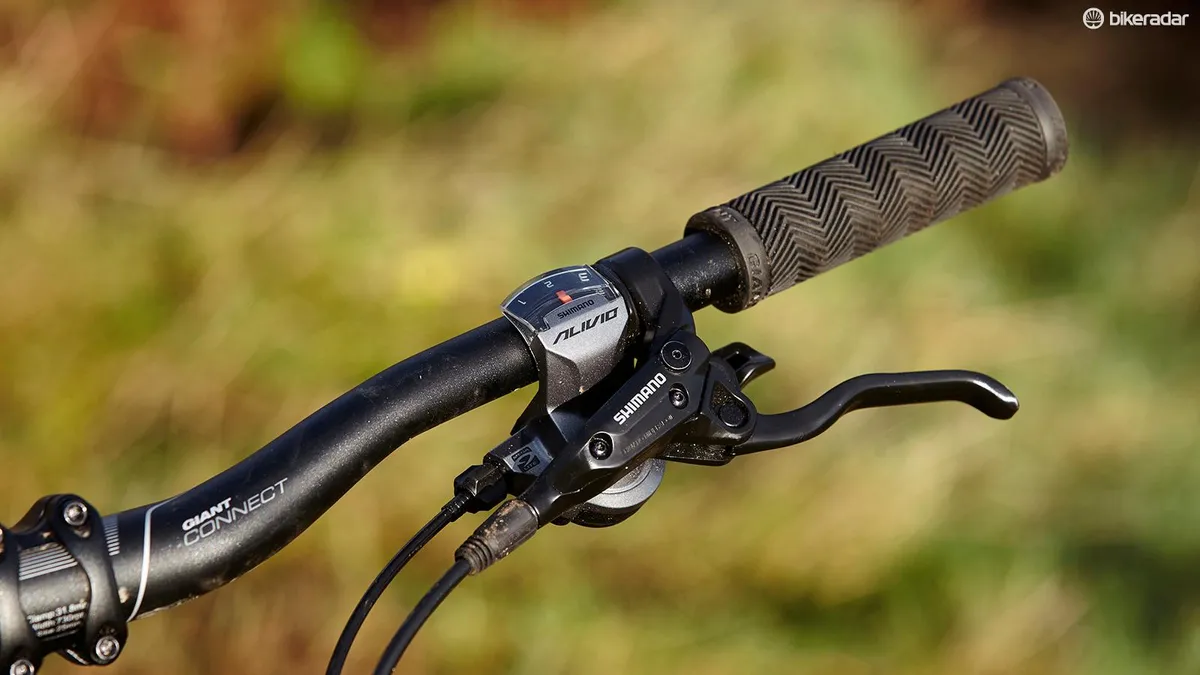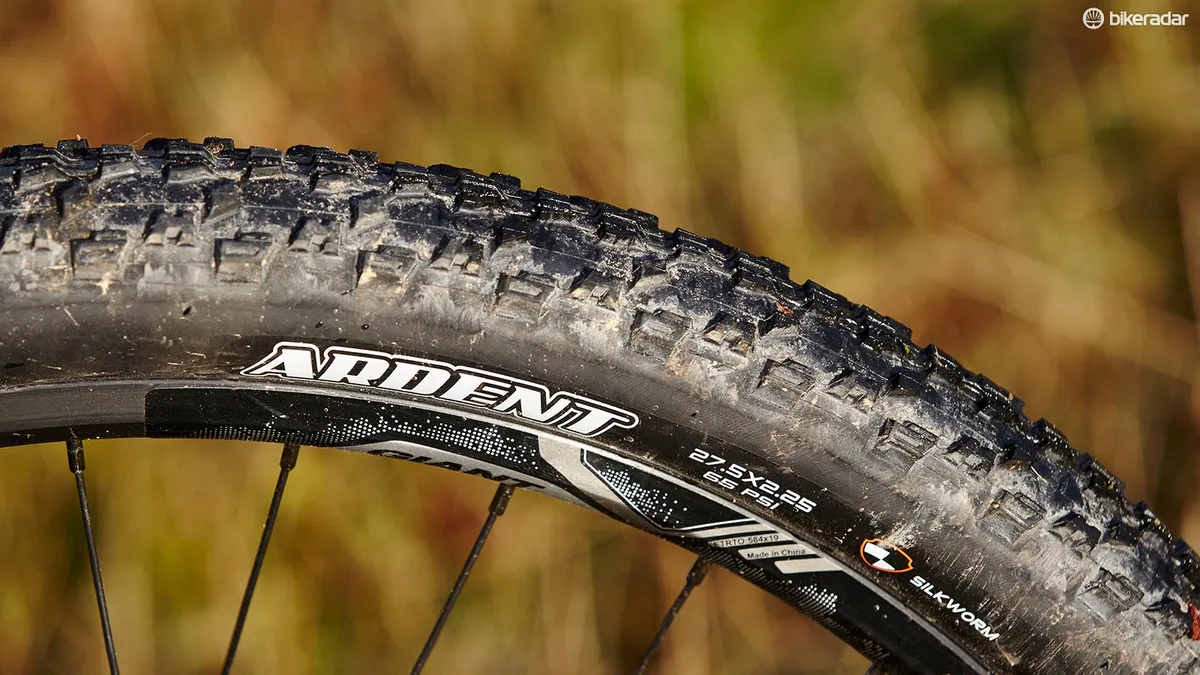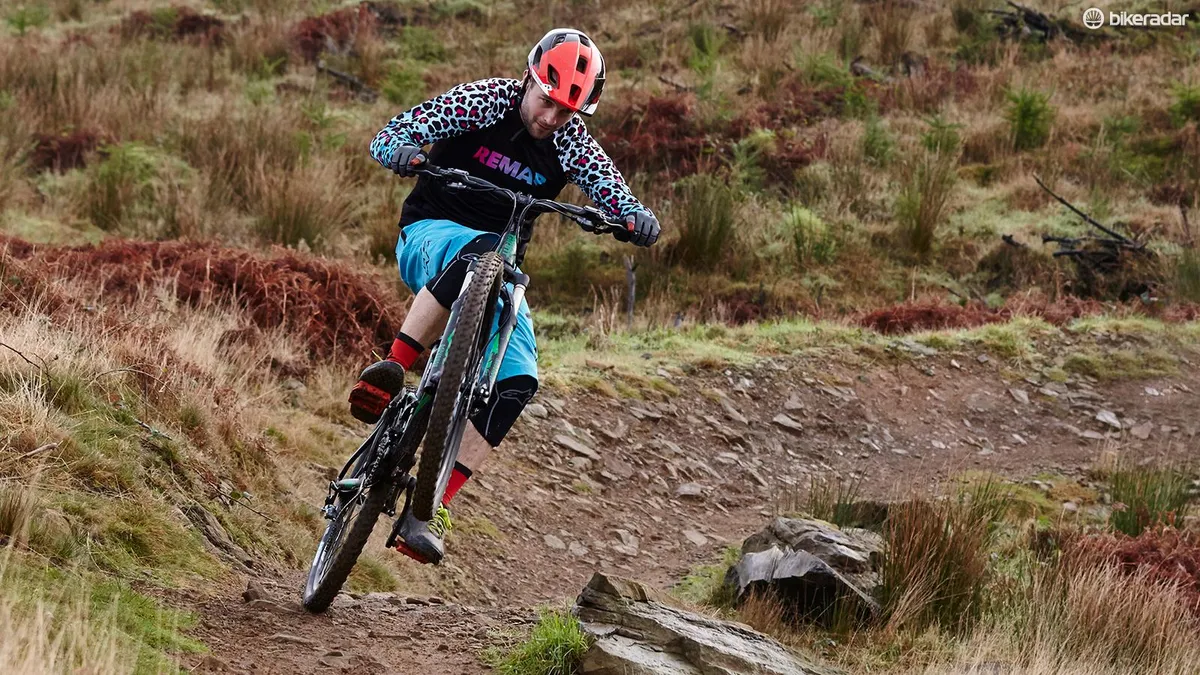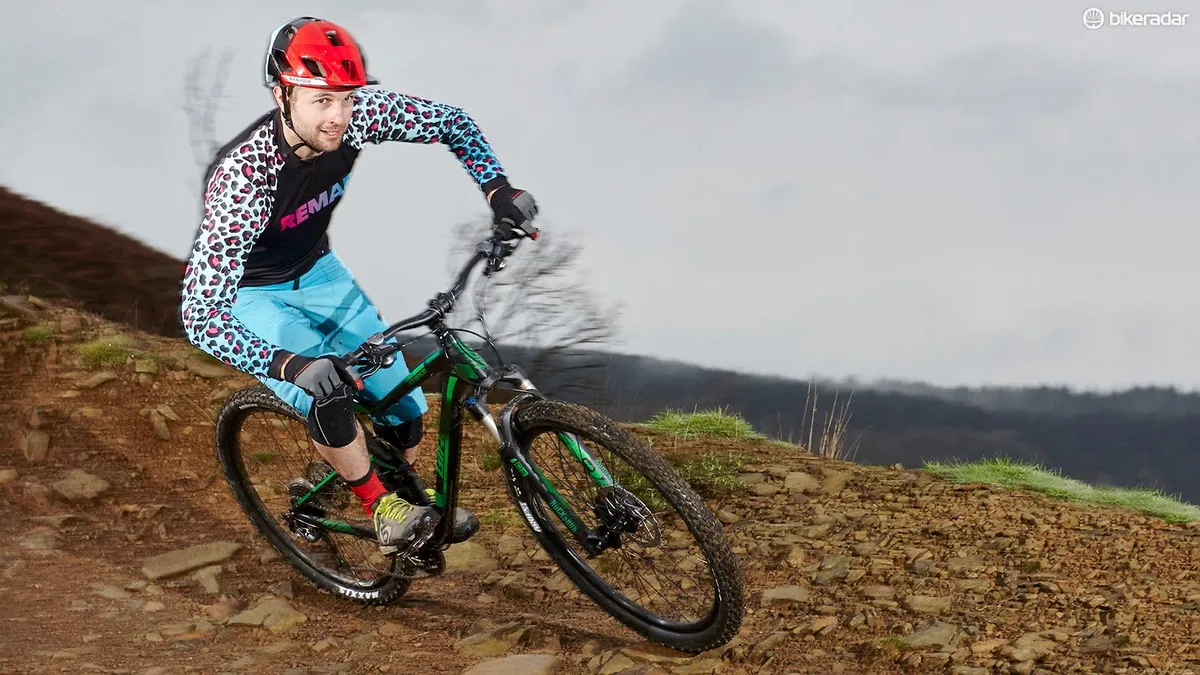Besides GT – whose new Verb bike hasn’t yet been available for us to test – Giant is the only big global manufacturer brave enough to go under the four-figure mark (in the UK) with a full-suspension bike. Its engineers have done a sterling job of delivering on the Taiwanese manufacturer's reputation for sorted full-sussers too, and in some ways it’s better for its simplicity.
Familiar format
The Stance chassis follows the well-established format of more expensive Giants, complete with tapered head tube, press-fit bottom bracket (BB) and hydroformed tubes throughout.
Unlike most bike manufacturers, Giant creates its ALUXX alloy tubing and builds the frames in its own factory, rather than subcontracting them to one of the handful of mega manufacturers such as, er, Giant. We’ve always had excellent long-term durability experience with its full-suspension bikes, both in terms of bearing life and general toughness.
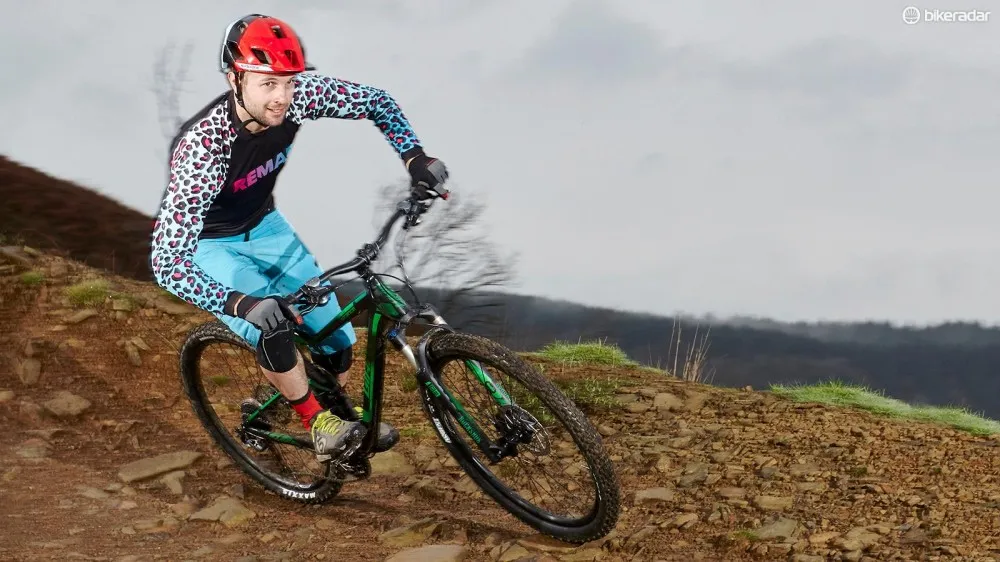
Giant build its frames in-house, from raw alloy right through to the finished bike, so the build quality and longevity of its bikes is second to none
The asymmetric rear end will take 2.35 to 2.4in rubber at a squeeze, and you get an easy-to-adjust post-mount rear brake. There are clips on the top tube for an externally cabled dropper post, such as Giant’s own Contact SL Switch, too. You don’t get the convertible (for different axle types) dropouts of more expensive models though.
Baked-in frame flex
While the neat top rocker and the lower shock mount that doubles as the bike’s main suspension pivot are straight from Giant’s long-running ‘Maestro’ linkage system, the Stance isn’t a Maestro design. Instead of a second, lower linkage and a solid rear subframe, it instead uses directly connected chainstays and seatstays that have been designed to flex very slightly as the suspension compresses. This ‘FlexPoint’ system saves weight and cost compared to extra pivots and linkages, and it turns out it’s no bad thing in terms of ride quality either.
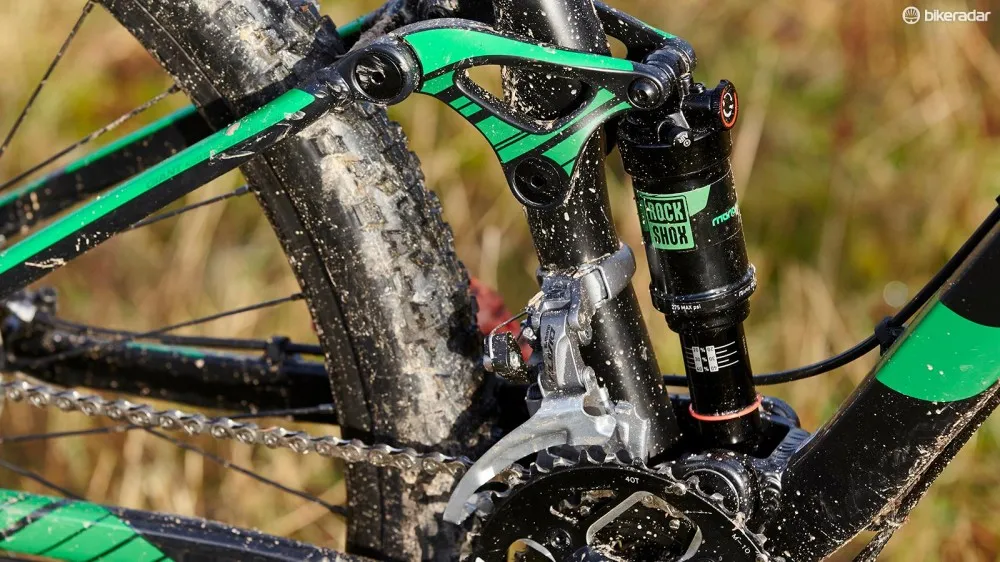
The Stance’s flex-stay rear end delivers decent pedalling efficiency without compromising the grip and control of its 120mm of travel
One point worth bearing in mind is that Giant generally works through independent bike dealers (along with a few wholly Giant ‘concept’ stores). That means it has to add an extra level of cost so those shops can make enough money to stay open – something that's useful when you suddenly need expert advice or workshop help the day before a big ride. Then again, as one of the largest manufacturers in the world, Giant can lean pretty hard on component suppliers to get the best price.
With that in mind, while the Shimano Alivio gears only get a nine-speed cassette out back, the FSA crankset and own-brand cockpit/seating kit and wheelset aren’t far off the quality of the components on comparable direct-buy bikes. You also get a RockShox Monarch rear shock that’s colour-matched to the frame like the fork and other parts.
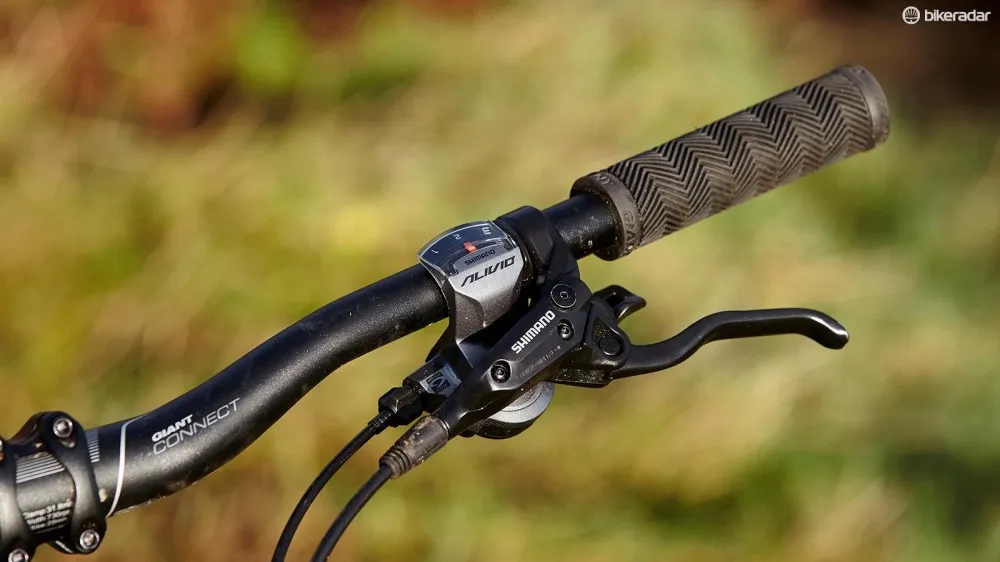
The only obvious downgrade is the RockShox 30 TK fork. While it’s the ‘Gold’ version, with alloy rather than steel legs to reduce weight, those legs are only 30mm in diameter and the wheel connection is a quick-release skewer, not a stiffer, more precise-steering thru-axle.
Noticeable flex
Unfortunately, the skinniness of the fork is obvious in the ride of the Stance. It’s OK if you’re just cruising smoothly or absorbing medium-size hits in a straight line without braking. But as soon as you try to turn or brake hard, the thin legs and spindly wheel connection mean vague and inconsistent tracking of the ground. Braking and/or turning places enough stress on the fork that it also chokes obviously if it has to absorb a hit at the same time.
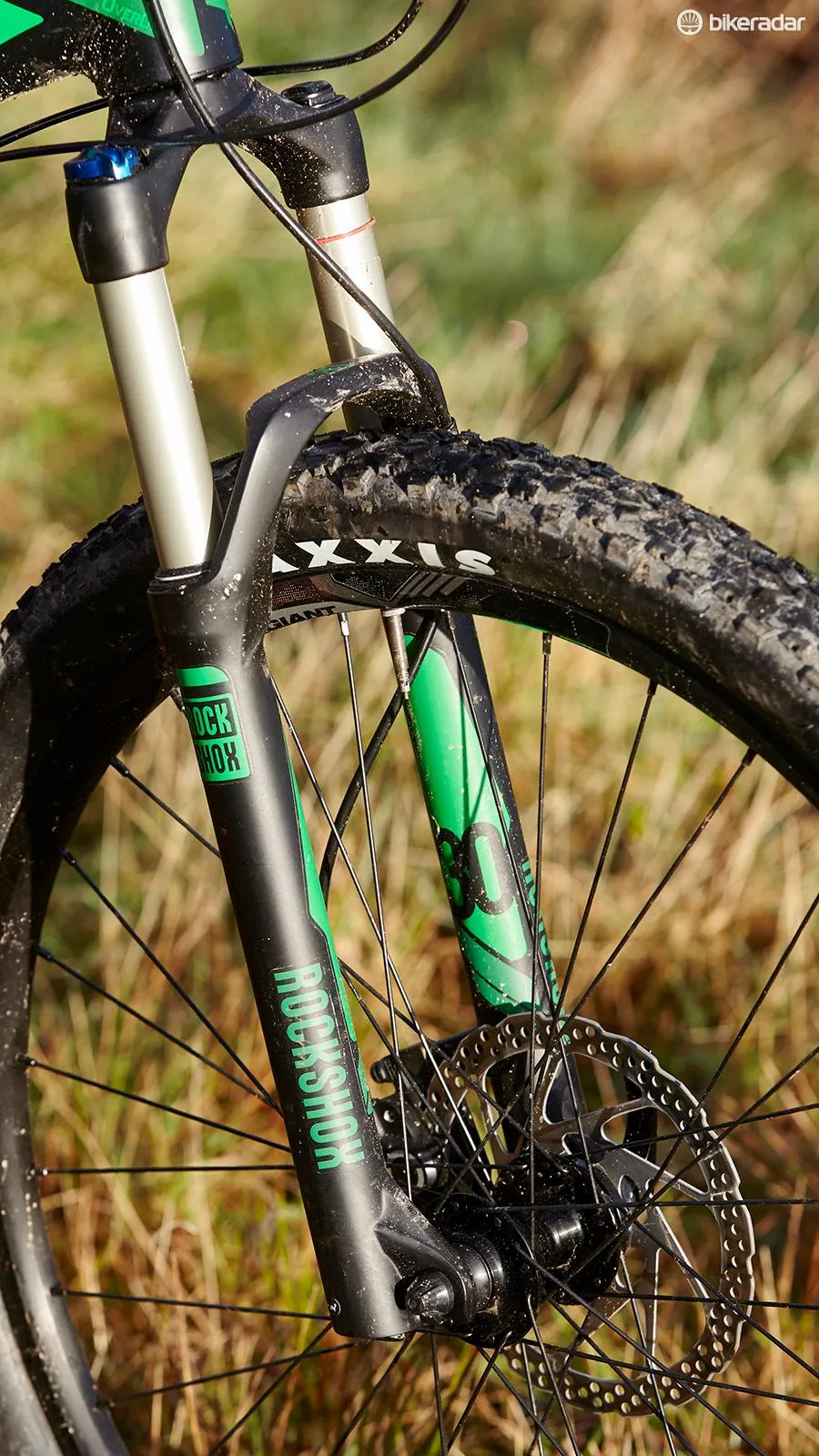
The skinny legged, QR dropout fork undermines control and confidence
The long 80mm stem doesn’t help when you’re trying to dodge something or force the bike across a rut or over an obstacle either. The good news is that, because the frame is already set up to take a tapered steerer, you’ve got an unrestricted choice of decent forks to pick from when you can afford to upgrade. If you want to add a thru-axle to the package that’s going to mean a new front wheel (or at least hub) as well though.
The frame is potentially worth upgrading though, because the FlexPoint system actually produces a steadier, more efficient feel under pedalling than you’ll find on Giant’s more expensive Maestro bikes. The tubes are engineered to naturally keep the bike around the sag point, which means the shock can extend to follow dips and maintain traction, but the back end doesn’t twang up and down as you pedal, like on some flex-stay bikes.
Add the fast-rolling Maxxis Ardent treads and relatively low wheel and complete bike weight, and the Stance is a really smooth yet spirited way to cover miles. If you can work around the fork, it’s not afraid to tackle red-graded descents at reasonable speed either.
